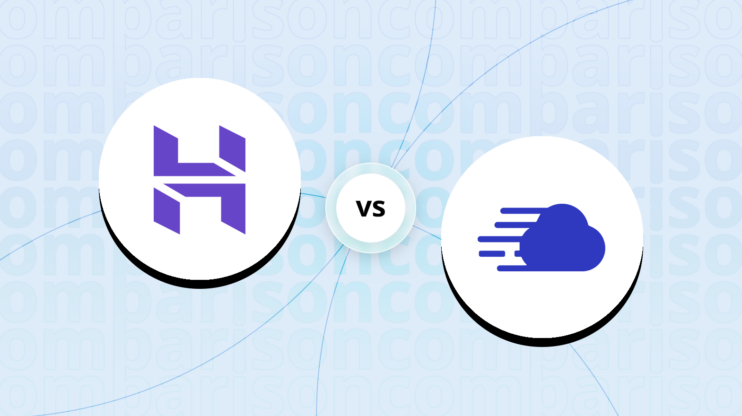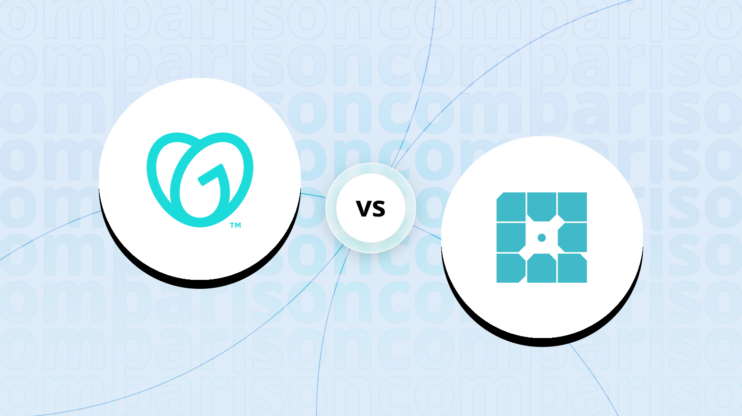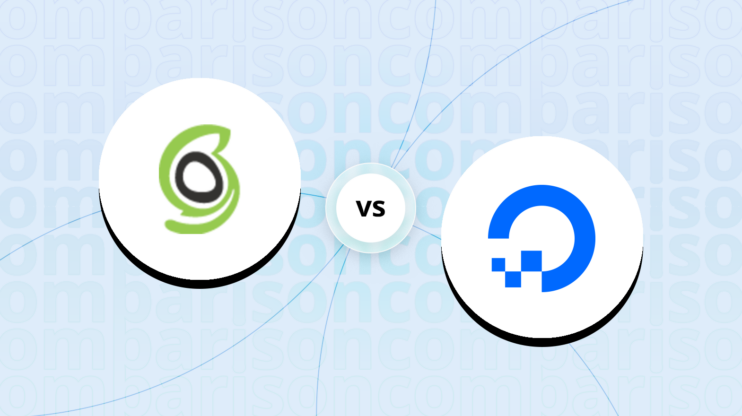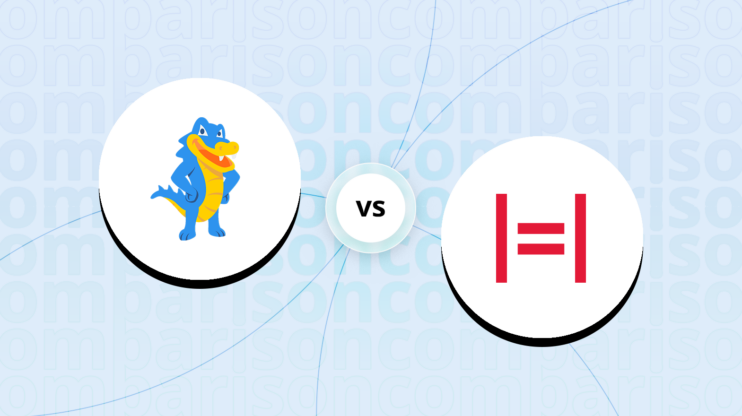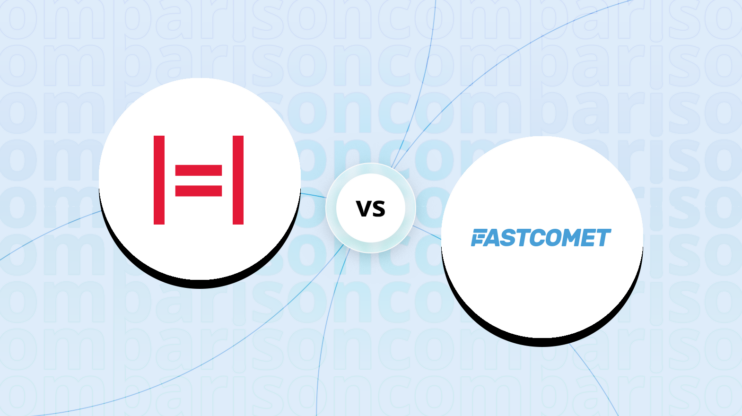Namecheap vs Codero: Final verdict
Looking over Namecheap vs. Codero, it’s clear why both hosts are so popular. They have both hosted millions of
websites that run on WordPress for decades, building up a loyal customer base.
-
Namecheap (Overall grade: 7.2)
stands out with its variety of user-friendly and affordable hosting plans, making it a prime choice for individuals and small to medium-sized businesses. It excels in features like shared and WordPress hosting, with added benefits such as free SSL certificates for the first year and easy website migration services. Additionally, Namecheap offers a strong uptime guarantee and performs well in terms of website speed. However, some users report occasional issues with slow loading times and a somewhat complex interface.
Codero (Overall grade: 6.2)
aims at more enterprise-level solutions with a focus on high-performance dedicated and private cloud hosting. Its comprehensive compliance certifications and advanced security measures are impressive, catering to businesses needing higher control and robust infrastructure. Codero provides strong scalability and customization options but at a higher cost, which may not be suitable for everyone. User feedback indicates concerns about reliability, frequent downtimes, and declining support quality, making it less appealing compared to its competitors.
 Overall grade:7.2 |
 Overall grade:6.2 |
|
|---|---|---|
| Uptime and Availability | 8.0 | 4.5 |
| Hosting Performance | 8.2 | 7.2 |
| Hosting Security | 8.5 | 9.0 |
| Price | 8.7 | 8.0 |
| Hosting Features | 7.5 | 4.3 |
| Ease Of Setup | 8.8 | 8.0 |
| User Management | 0.0 | 0.0 |
| Customer Support | 8.0 | 8.3 |
| User feedback | 4.3/5 | 0/5 |
Hosting types offered
Both platforms provide a variety of hosting types, each designed to meet the different needs of users.
 |
 |
|
|---|---|---|
| Shared hosting | ||
| Cloud hosting | ||
| WordPress hosting | ||
| Ecommerce hosting | ||
| VPS hosting | ||
| Dedicated hosting |
Although both offer a variety of hosting plans tailored to different needs, in certain cases, one platform may prove to be more suitable.
Detailed comparison
Uptime and availability
Evaluates the average uptime statistics, uptime guarantee and overall availability of the hosting
provider
Score Components:
- Uptime percentage (30%): evaluates the uptime statistics in given period of time
- Uptime guarantee (20%): Assesses if the platform offers an uptime guarantee and
whether the actual uptime matches the promised guarantee. - General performance (25%): Evaluates how fast is the average response time and overall
it’s stability. - Responsiveness (10%): Adaptability to different devices and screen sizes.
- Availability (25%): Reflects the total downtime and number of outages.
 8.0
8.0
 4.5
4.5
🏆 Winner: Namecheap: Exceptional uptime guarantees and strong performance metrics make Namecheap a reliable choice for hosting.

Namecheap provides a 100% uptime guarantee for shared, business, and dedicated server accounts, and a 99.9% uptime guarantee for reseller and VPS accounts. Actual performance has been impressive, with Namecheap achieving perfect 100% uptime in some tests and an average uptime of 99.96%. Response times, though slightly below market averages, are acceptable with an average of 1.05 seconds. Compensation for downtime includes up to one month of free hosting.

Codero’s 99.9% uptime guarantee is overshadowed by negative user reviews citing frequent and lengthy downtimes. Reports of scheduled maintenance causing outages up to 12 hours and repeat downtimes of 3-5 hours twice a month paint a less reliable picture. Despite having data centers in Dallas, Phoenix, and Ashburn, user experiences suggest noticeable service interruptions.
Which one has better hosting performance?
Score Components:
- Hosting speed (30%): This includes SSD quality, Load times, PageSpeed score ranges,
additional information on website speed, built-in plugins for performance enhancement, available caching
methods, and CPU/RAM options - CDN (20%): Considers whether CDN is available or not, whether it’s free or paid, and
the quality of the CDN service - Available data centers (30%): Evaluates the number of data centers and their locations
globally. - Scalibility (20%): Looks at whether elastic scaling is available, the process required
to scale (manual upgrade vs. automatic scaling), the presence of dedicated servers, and the costs
associated with scaling.
 8.2
8.2
 7.2
7.2
🏆 Winner Namecheap: Comprehensive and eco-friendly web hosting solutions.
Namecheap offers a variety of hosting plans with SSD storage, unmetered bandwidth, and multiple data center locations across the US, UK, and EU. The WordPress hosting boasts a fully loaded time of 0.7 seconds, while the shared and VPS hosting plans provide various levels of SSD storage and RAM. Namecheap includes a free CDN and SSL with its WordPress plans, and its EU data center is powered by renewable energy. Codero, on the other hand, focuses on high-performance dedicated servers with configurations offering up to 32 GB of DDR4-2400 ECC RAM and enterprise SSD storage. Codero’s data centers are located in Phoenix and Dallas, providing reliable performance and security, but it lacks a free CDN.
Website Speed
Namecheap excels in website speed with a fully loaded time of 0.7 seconds for its WordPress hosting and an impressive time to first byte of 192 milliseconds. The SSD storage and free CDN contribute to fast loading times, making websites hosted on Namecheap quicker to load. Codero, while offering high-performance servers, doesn’t specify exact page load times, which makes it less transparent in terms of actual website speed.
Scalability
Namecheap offers various plans tailored for different user needs but does not mention elastic scaling. Customers must manually upgrade their plans to accommodate growth. VPS and reseller hosting provide scalability with more disk space and resources. Dedicated servers are available for users with higher needs. Codero offers strong scalability options, including private cloud configurations and dedicated servers, but costs to scale are higher, starting at $136 per month for basic configurations. They provide flexibility with root access and multiple IP addresses, adding control and security for scaling needs.
Which one has better security features?
and regulatory requirements
Score Components:
- Technical security measures (40%): This includes encryption, firewalls, DDoS
protection, secure configurations, server monitoring, access control and availability of security addons
(e.g Sitelock security). - Operational security measures (30%): Encompasses data privacy, backups and data
redundancy. - Compliance and certifications (20%): Adherence to legal and regulatory requirements
(e.g., GDPR, HIPAA) and possession of certifications (e.g., ISO 27001, SOC 2). - Business and reliability (10%): Factors in the provider’s reputation, uptime
guarantees, and customer support.
 8.5
8.5
 9.0
9.0
Winner Codero: Provides a robust and comprehensive suite of security features and compliance certifications.
Technical security measures:
Namecheap offers SSL certificates ranging from Domain Validation to Extended Validation, along with features like Two-Factor Authentication, PremiumDNS, and various levels of email protection. Namecheap also supports a wide range of PHP versions from 5.X to 8.X. By comparison, Codero provides free SSL certificates through LetsEncrypt, Sectigo certificates, and advanced intrusion detection and prevention systems (IDS/IPS). Codero’s security services powered by Cloudflare further enhance protection against DoS attacks and optimize website performance.
Operational security measures:
Namecheap ensures operational security through features like FastVPN, domain privacy, and CodeGuard backup, making it adept at protecting user data and maintaining uptime. Additionally, features like Leech Protect and IP Deny Manager bolster its security. On the other hand, Codero excels in managed firewall solutions and offers Advanced Threat Protection, which defends against zero-day attacks. Codero’s custom reporting and alerting systems provide granular control over security measures, making it slightly more sophisticated in operational security.
Compliance and certifications:
Namecheap provides GDPR compliance features including the rights to access, rectification, and data portability. It does not explicitly mention HIPAA or PCI compliance. Codero’s compliance measures are more comprehensive, featuring AICPA SOC 2 Type 2 and HIPAA certifications. It also boasts Microsoft Gold Certification and is an AWS Select Consulting Partner, reflecting its broader compliance capabilities.
 |
 |
|
|---|---|---|
| SSL certificate | Available | Available |
| Additional security features | Available | Available |
| PHP versions | PHP 5.X to 8.X | Not specified |
| GDPR compliance | Yes | Not specified |
| HIPAA compliance | Not specified | Yes |
| PCI compliance | Not specified | Not specified |
Hosting features
Score Components:
- Domains (20%): Assesses the availability of a free domain, domain purchase options, and
pricing - Email (15%): Considers if the provider offers full email hosting, or is reselling
third-party service, and if the email is only transactional or not - Website builder (15%): Checks if website builder is available, and it’s user
friendliness and overall the level of customization allowed. - Staging environment (20%): Determines if a staging environment is available, allowing
for testing changes before going live. - FTP & SFTP accounts (10%): Evaluates if and how easily users can access FTP and
SFTP accounts - Git and SSH access (20%): Assess whether Git is integrated into the hosting service and
if SSH access is provided
 7.5
7.5
 4.3
4.3
🏆 Winner Namecheap: Affordable hosting with a wide range of features and excellent support.
Namecheap and Codero both offer reliable hosting solutions, but they cater to slightly different needs. Namecheap shines with its variety of shared and WordPress hosting plans, many of which include an easy-to-use website builder. This feature is ideal for users looking for simplicity in creating and managing their sites. The inclusion of free PositiveSSL certificates for the first year and free Supersonic CDN adds significant value to all its hosting plans. Codero, on the other hand, focuses on dedicated hosting and private cloud solutions. It provides a high level of control, customization, and performance suitable for more technically sophisticated users or businesses with stringent regulatory compliance needs. Codero’s offerings like root access, dedicated IPs, and advanced virtualization options cater to professionals seeking robust server control.
When it comes to ease of use, Namecheap is geared toward a broader audience with its cPanel and one-click WordPress installs, alongside features like free website migration within 24 hours. This makes the transition hassle-free, particularly for those without deep technical expertise. Conversely, Codero offers customization options in their private cloud services that can be tailored to meet specific business needs. Their pricing starts higher, indicative of their focus on enterprise-level performance and security, such as HIPAA and PCI DDS compliance. For users requiring high availability and the ability to handle traffic spikes with load balancing, Codero stands out. Despite the lack of a built-in website builder, it compensates with robust performance under higher traffic loads.
 |
 |
|
|---|---|---|
Free domain |
No |
No |
Free SSL |
Yes, for the first year |
Yes |
Email hosting |
Yes |
No |
Website builder |
Yes |
No |
Staging environment |
No |
No |
FTP & SFTP accounts |
Yes |
Yes |
Git and SSH access |
Yes |
Yes |
Free backup |
Yes |
Yes |
Money back guarantee |
Yes |
No |
a location.
As a result in rare cases the features mentioned here can differ from the ones you see on their websites.
Both providers support a range of users from beginners to experts with user-friendly website builders and WordPress staging areas. However, in terms of developer tools, both Namecheap and Codero offer robust options including SSH access, support for multiple programming languages, and Git for version control, thus appealing to developers looking for advanced capabilities.
Email services:
Namecheap provides extensive email hosting capabilities with up to 30 mailboxes for its entry-level Stellar plan and unlimited mailboxes for higher-tier plans. Users can utilize domain-based email addresses, spam protection, and full SMTP, POP3, and IMAP protocols for robust email management. Codero, however, does not focus on email hosting services in their dedicated or private cloud offerings. Instead, they provide transaction email capabilities through managed infrastructure setups. Codero does not currently resell third-party email services, whereas Namecheap’s offerings include Jellyfish Spam Protection to enhance email reliability and security.
Price
Score Components:
- Plan value (40%): What each pricing tier offers.
- Transparency and clarity (30%): Clearness of pricing structures.
- Flexibility of plans (20%): Range of options to suit different budgets.
- Hidden costs (10%): Additional expenses not included in the plan.
 8.7
8.7
 8.0
8.0
🏆 Winner Namecheap: Affordable and feature-rich plans across a variety of hosting types.
Evaluating the pricing of plans among various hosting providers can be complex due to their differing pricing and renewal strategies. Additionally, certain plans require annual commitments, which adds to the difficulty of making comparisons. The prices listed are based on monthly commitments; plans requiring annual commitments are indicated. Additionally, although some providers offer identical plans for WordPress and shared hosting, we have created separate tables for each to enhance clarity.
Namecheap offers a wide variety of hosting plans that cater to different needs and budgets, whereas Codero focuses on providing robust dedicated and private cloud hosting options. Namecheap’s Shared Hosting Plans begin as low as $1.98/mo with a variety of features such as free SSL certificates, free domain name for the first year, SSD storage, and unlimited websites on higher-tier plans. On the other hand, Codero’s pricing starts at $136 per month for dedicated hosting solutions with high-performance hardware and extensive support options. Although Codero specializes in premium hosting with more enterprise-focused services, Namecheap stands out with its competitive pricing, comprehensive features, and user-friendly interface, making it an appealing option for a broader range of customers.
 |
 |
|---|---|
|
Stellar$4.48
3 websites, 20 GB SSD, 30 Mailboxes, website builder, free domain name for the first year, free automatic SSL installation, free Supersonic CDN, free website migration in <24 hours Value for price:9.0
|
N/A |
|
Stellar Plus$6.48
Unlimited websites, unmetered SSD, unlimited mailboxes, AutoBackup, website builder, free domain name for the first year, free automatic SSL installation, free Supersonic CDN, free website migration in <24 hours Value for price:9.5
|
N/A |
|
Stellar Business$9.48
Unlimited websites, 50 GB SSD, unlimited mailboxes, AutoBackup & Cloud Storage, website builder, free domain name for the first year, free automatic SSL installation, free Supersonic CDN, free website migration in <24 hours Value for price:9.8
|
N/A |
 |
 |
|---|---|
|
EasyWP Starter$6.88
1 WordPress website, 10 GB SSD storage, handles 50k visitors/month, free CDN, free SSL, easy backups and restores, hosted on Namecheap Cloud, 99.9% Uptime Value for price:9.3
|
N/A |
|
EasyWP Turbo$12.88
1 WordPress website, 50 GB SSD storage, handles 200k visitors/month, 1.5x more CPU, 1.5x more RAM, free CDN, free SSL, easy backups and restores, hosted on Namecheap Cloud, 99.9% Uptime Value for price:9.4
|
N/A |
|
EasyWP Supersonic$19.88
1 WordPress website, 100 GB SSD storage, handles 500k visitors/month, 2x more CPU, 2x more RAM, 99.99% uptime guarantee, free CDN, free SSL, easy backups and restores, hosted on Namecheap Cloud, 99.9% Uptime Value for price:9.6
|
N/A |
 |
 |
|---|---|
| N/A |
Developer Private Cloud$299
2 servers, 32G RAM, 2 x 1T RAIDz1, 100M Firewall, 8 IP Addresses Value for price:8.5
|
| N/A |
Production Private CloudContact for pricing
3 servers, 96G RAM, 3 x 1T RAIDz1, 200M Firewall, 12 IP Addresses Value for price:9.0
|
|
Basic Dedicated Server$44.88
Full root access, customizable configurations, 24/7 support, 7-day money-back guarantee, various OS options, 200 GB backup storage Value for price:8.2
|
Business Private CloudContact for pricing
5+ servers, 160G+ RAM, Custom storage, 1G Firewall, 16 IP Addresses Value for price:9.2
|
Enterprise plans
For enterprise hosting needs, Codero provides specialized dedicated server options, starting with the CS400 at $136 per month, and their premium configurations climbing substantially higher with robust performance features like Xeon processors and extensive ECC RAM. Namecheap also offers dedicated server hosting but at a significantly lower starting price of $44.88, catering to businesses that require root access and customizable configurations with various OS options. While Codero’s higher costs reflect their enterprise-class hardware and advanced support, Namecheap’s competitive pricing and reliable features make it a strong contender for businesses seeking cost-effective yet highly functional dedicated servers.
Namecheap vs Codero: Ease of setup
platform.
Score Components:
- Site migration (25%): Assesses whether the provider offers tools for site migration,
either automated or manual, and whether these services are free or require a fee. - Admin panel usability (35%): Evaluates the type of admin panel provided, such as the
standard cPanel or a custom solution, focusing on its accessibility and user-friendliness for both
technical and non-technical users. - Setup features (20%): Examines the availability and ease of use of various setup
features, including FTP accounts, file managers, email account setup, PHPMyAdmin, and easy CDN
configuration. - Help center quality (20%): Measures the quality and accessibility of the provider’s
help center resources, including articles and tutorials.
 8.8
8.8
 8.0
8.0
🏆 Winner: Namecheap: User-friendly setup process, extensive support options, and free migration service.
Namecheap offers a customized EasyWP dashboard instead of the traditional cPanel, providing a streamlined experience tailored for both technical and non-technical users. By consolidating various management tools in a single interface, it allows users to effortlessly handle domain connections, backups, and other administrative tasks. The Softaculous app installer further simplifies the process, enabling one-click installations of popular CMS platforms like WordPress, Joomla, and Drupal. The instant setup feature ensures that users can start configuring their websites immediately upon completing their order.
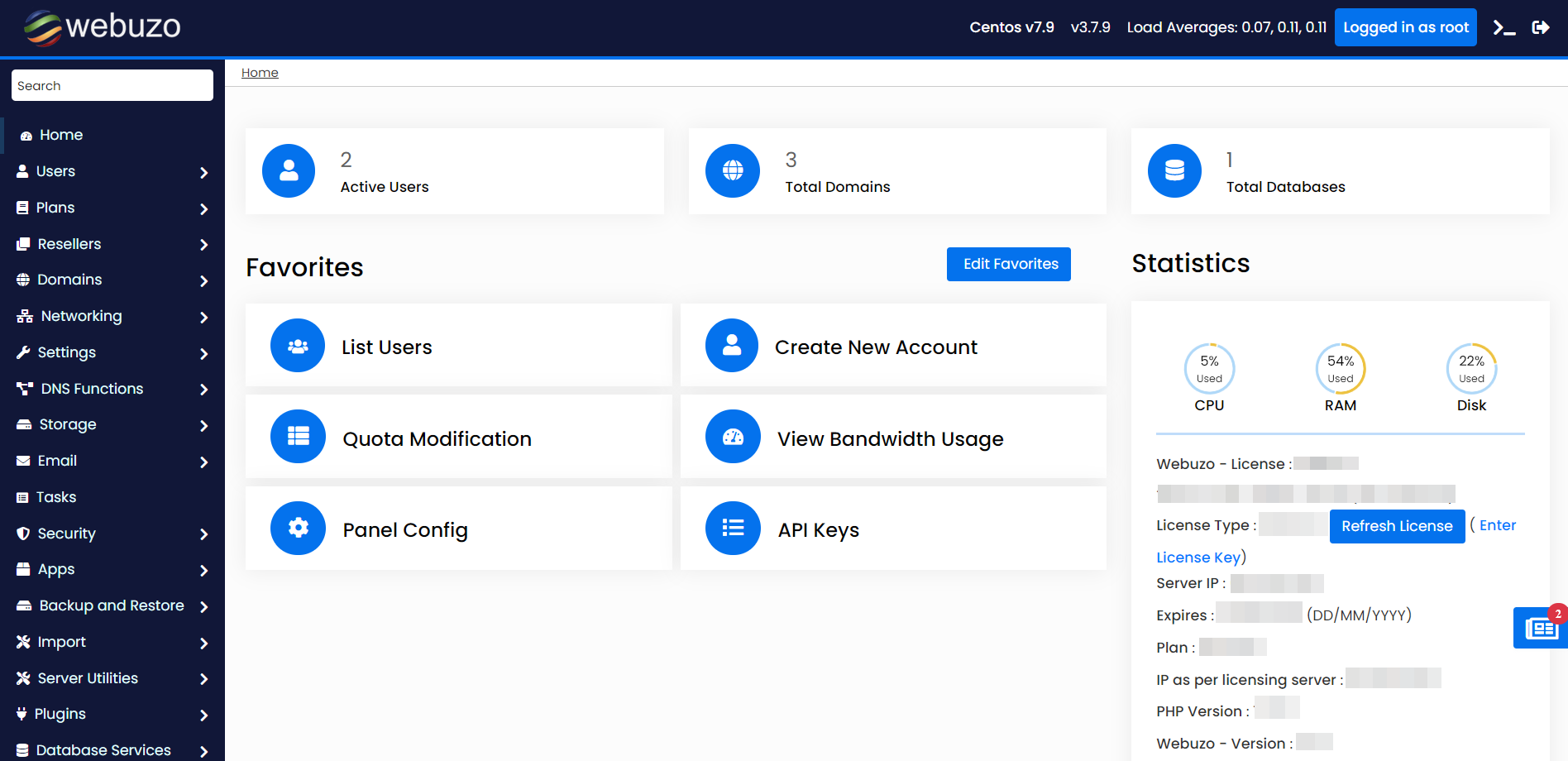
Codero employs a more traditional setup with its My.Codero.com portal, which supports a variety of functions such as service management, billing, and support requests. While it does not offer a customized admin panel, its strength lies in the flexibility and customization options it provides during transitions to cloud or hybrid infrastructures. This ensures that both future business goals and existing legacy systems are seamlessly integrated. The portal’s emphasis on secure access to services and the availability of standard monitoring tools maintains an environment conducive to managing complex hosting needs.

For website migration, Namecheap stands out due to its free service, capable of transferring sites from various hosts like GoDaddy, BlueHost, and SiteGround. They use the All-in-One WP Migration plugin, making the process straightforward for users. In contrast, Codero offers a migration service handled by their experts, focusing on minimizing disruptions to business services and clear communication. Although Codero charges for different levels of support, they commit to seamless transitions.
The quality and accessibility of help center resources vary. Namecheap provides extensive 24/7 live chat support, a comprehensive Knowledgebase, a support ticket system, and 24/7 Help Desk access. This extensive array of support channels ensures that users can quickly find answers to their questions or troubleshoot issues. Codero also offers round-the-clock support via phone, chat, and email, along with a tiered support structure that includes options for more hands-on assistance. Their My.Codero.com portal centralizes these resources for secure and efficient management.
User management
accessibility.
Score Components:
- Role customization (40%): Flexibility in creating and defining user roles and
permissions. - Ease of management (30%): User interface and tools for managing users.
- Access control (20%): Effectiveness of access control measures for different user
levels. - Scalability (10%): Ability to manage a growing number of users efficiently.
 0.0
0.0
 0.0
0.0
🏆 Winner
Codero: Codero excels in user management capabilities and flexibility.
Namecheap and Codero vary significantly in their user management features. Namecheap offers basic functionalities for user role creation and permission settings, but it lacks the flexibility that advanced users might require. Codero, on the other hand, provides a more granular approach to managing user roles and permissions, enabling administrators to define highly specific access levels. This makes Codero a better fit for organizations with more complex user needs, where detailed role definitions are essential for security and efficiency.
The user interfaces of Namecheap and Codero reflect their different focuses. Namecheap’s interface is straightforward and user-friendly, designed for users who need basic functions without delving into complex configurations. Codero provides a more feature-rich interface, supporting advanced tools for managing users. This includes dashboards and detailed logs that make monitoring and auditing user activities more efficient. Users who require detailed insights into user actions will find Codero’s tools more comprehensive and beneficial.
When it comes to access control measures, Namecheap offers standard features that suffice for small to mid-sized teams but may become strained under higher demands. Codero demonstrates superior capabilities in this area, providing scalable solutions designed to handle a growing number of users without compromising on security or performance. Its advanced user management features allow for robust access control, ensuring that permissions are maintained accurately as user numbers increase.
Codero user roles table:
| Role | Description | Access highlights |
|---|---|---|
| Admin | Full control over the platform, including user creation and role management. | Access to all settings, roles, and advanced configurations. |
| Editor | Can modify existing content and user-generated data. | Permissions to edit and update data without full admin rights. |
| Viewer | Read-only access to information on the platform. | Can view data but cannot make any changes. |
| Contributor | Can add new data but cannot edit existing entries. | Permissions to create content but limited editing rights. |
Customer support
hosting provider.
Score Components:
- Support communication channels (30%): Measures the variety of customer support types
provided (live chat, chatbot, email, phone, etc.) - Availability (20%): Assesses the availability hours for each channel, including 24/7
support options. - Technical support quality (30%): Assesses whether the provider offers comprehensive
technical support, including hardware upgrades (e.g., HDD to SSD), software installations, and web
server configuration changes. - Enterprise support (20%): Checks if there are dedicated or priority support services
for enterprise-level customers.
 8.0
8.0
 8.3
8.3
🏆 Winner Codero: Codero provides flexible support tiers and a full suite of contact options, including dedicated phone support.
 |
 |
|
|---|---|---|
Phone support |
||
Live chat support |
||
Chatbot |
||
Email/ticket support |
||
Enterprise support (dedicated agent, priority support) |

When comparing Namecheap and Codero, distinct differences in customer support options arise. Namecheap offers 24/7 live chat, an extensive knowledge base, and a ticketing system, which provide customers with a broad range of self-service tools and immediate live assistance. However, they lack phone support which may be a downside for some users. Namecheap also offers useful additional features like migration assistance and instant setup to enhance user experience.

Codero, on the other hand, offers phone, email, and chat support, making it easy for customers to reach their support team through various channels. Codero further provides distinct support tiers with allocated support hours, catering to the needs of both smaller businesses and larger enterprises. Codero’s emphasis on premium support, including monitoring services, makes it a suitable choice for businesses that require higher levels of service and assurance.
Namecheap vs Codero: User feedback
Namecheap is highly appreciated for its affordability, reliable web hosting, and excellent customer support, available 24/7 via live chat. Users commend the inclusion of free SSL certificates and quality cPanel features, making it ideal for beginners and small to medium-sized businesses. However, some dissatisfaction is noted with the shared hosting plans, which are reported to have slow loading speeds and stability issues. Additionally, there are occasional concerns about the complexity of the user interface and the lack of multilingual support.
User feedback on Codero’s web hosting service indicates significant dissatisfaction. Many customers highlight frequent and prolonged outages with a lack of communication and transparency from the company during these incidents. Additionally, there is a noted decline in the quality of technical support, with the current staff being described as less skilled and harder to reach compared to previous years. Overall, long-term users feel that Codero’s service quality has diminished while competition and internal issues have increased.
Namecheap vs Codero: FAQ
Which platform is better suited for hosting WordPress websites?
Namecheap is better suited for hosting WordPress websites, offering extensive plans and tools specifically for managed WordPress hosting. Their EasyWP plans provide features like free SSL, CDN, and easy backups and restores, all hosted on Namecheap Cloud with 99.9% uptime. Codero does not offer dedicated WordPress hosting, focusing more on enterprise-level solutions.
What are the major differences in pricing and value between Namecheap and Codero?
Namecheap offers a wide variety of hosting plans at competitive prices, starting as low as $1.98/mo for shared hosting with features like free SSL certificates and SSD storage. Codero’s plans start at $136 per month for dedicated hosting, focusing on robust performance and higher control, which may not be as cost-effective for smaller businesses. Namecheap provides more affordable options suitable for a broader range of customers.
Which hosting service offers better security features?
Codero excels in security features, offering advanced intrusion detection and prevention systems, managed firewall solutions, and compliance certifications like HIPAA and SOC 2 Type 2. Namecheap also provides strong security measures, including various SSL certificates, Two-Factor Authentication, and PremiumDNS. However, Codero’s comprehensive suite of security features and compliance certifications make it slightly more robust.
What are the differences in the control panels offered by each hosting service?
Namecheap offers a customized EasyWP dashboard tailored for both technical and non-technical users, consolidating various management tools for a streamlined experience. They also use cPanel for other hosting plans. Codero uses the My.Codero.com portal, which supports a variety of functions like service management, billing, and support requests, providing flexibility and customization options.
The making of this blog
We followed a clear, step-by-step process to write and research this article.









